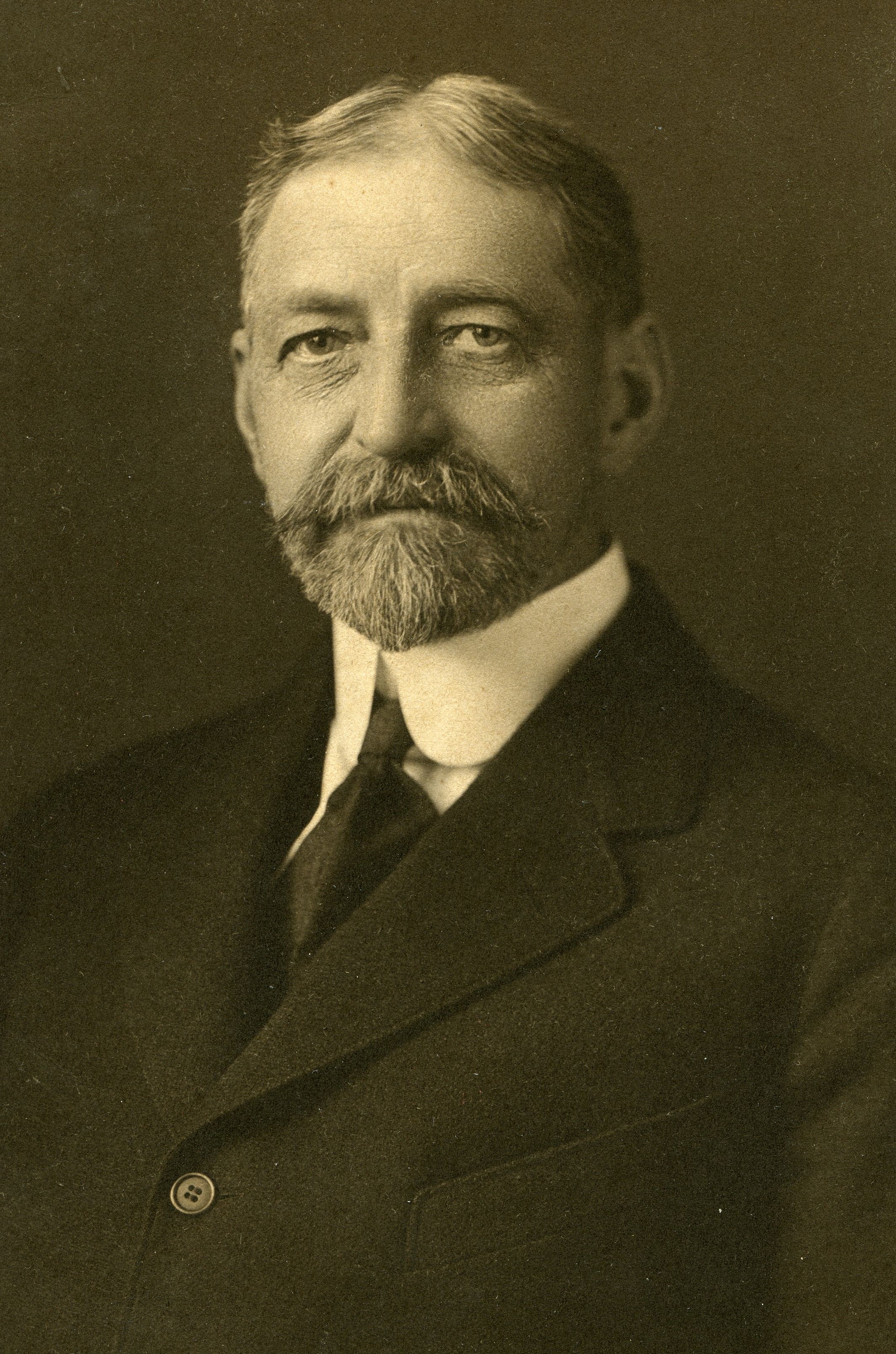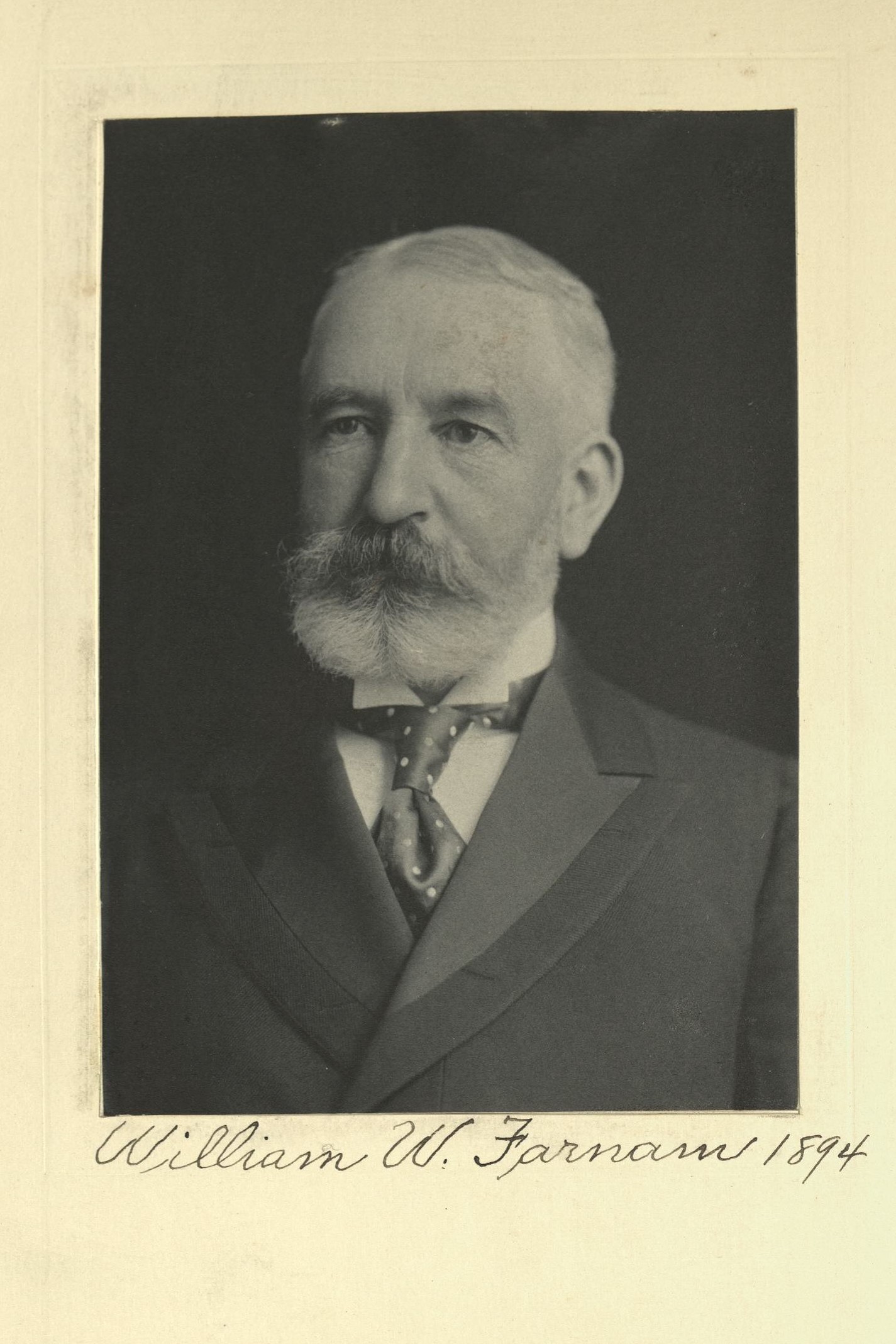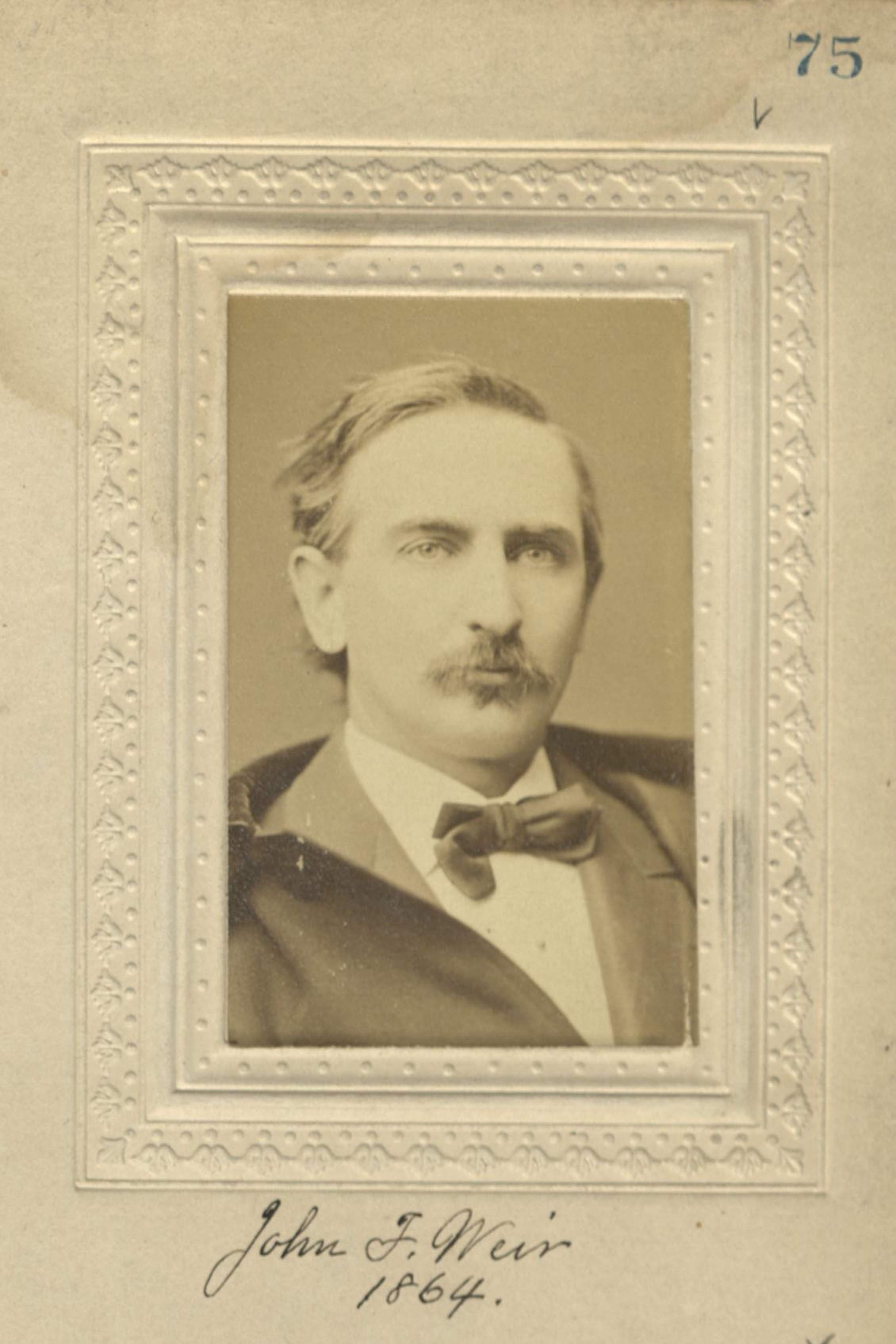Member Directory,
1847 - 1922
Henry W. Farnam
Professor of Political Economy
Centurion, 1883–1933
John F. Weir
New Haven, Connecticut
New Haven, Connecticut
Age twenty-nine
New Haven, Connecticut

Archivist’s Notes
Brother of Charles H. Farnam and William W. Farnam
Century Memorial
Speaking at the Pilgrims’ dinner, not many months ago, one of the foremost British economic thinkers apologized humorously for his occupation, and raised the question whether our much-predicted revolution might not end in demand for “the economists to the lamp-posts.” He may have had in mind the professors who gave their public blessing to the ideas of 1929. It may have been the hurling at one another’s heads of diametrically opposite theories derived from the same set of visible economic facts. Or the friendly foreigner may merely have observed the recent surgical experiments on the unhappy body politic, conducted by economists installed in the official laboratory.
When the English visitor made his speech, there was not much doubt that the title “economist” invited a certain popular disrespect. During five crucial economic years, the only members of the profession who had figured in the news were college professors whose theories proved that the speculative boom would never stop, or else, later on, professors with fantastic expedients which they were resolved to try overnight on a helpless public. There were doubtless other and very different economists than these, but they kept silence during that strange period. It was a singular picture; yet in the last two months the picture has altered as suddenly as it was first presented, and as completely. The uprising of our economic teachers in a body since last summer, against the crude experiments with the currency, their organized and public attack on official economic fallacies, make up a notable chapter in last year’s political history. One of the old-time fighters for sound money and good sense is on our list tonight. Henry Walcott Farnam, who during forty years had filled the chair of political economy at Yale, did yeoman service at the time of the Bryanite delusions in the Nineties. It was perhaps because of increasing age and retirement from active work that he did not take an active hand in the controversies of 1933. He was not adapted, so his friends declared, for the rough-and-tumble of politics. Perhaps that was what handicapped his fellow-economists, in their long silence between June, 1928, and October, 1933.
Alexander Dana Noyes
1934 Century Association Yearbook





